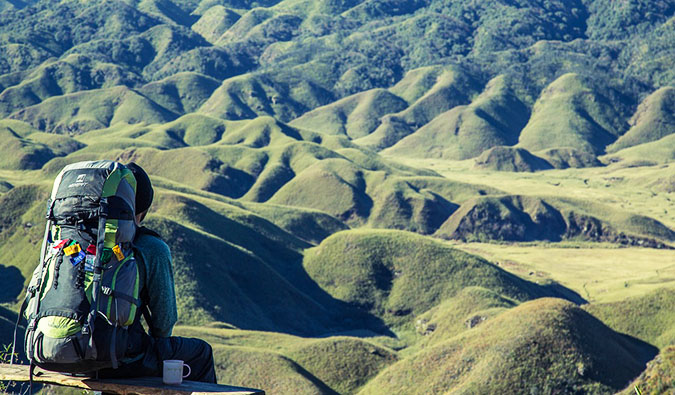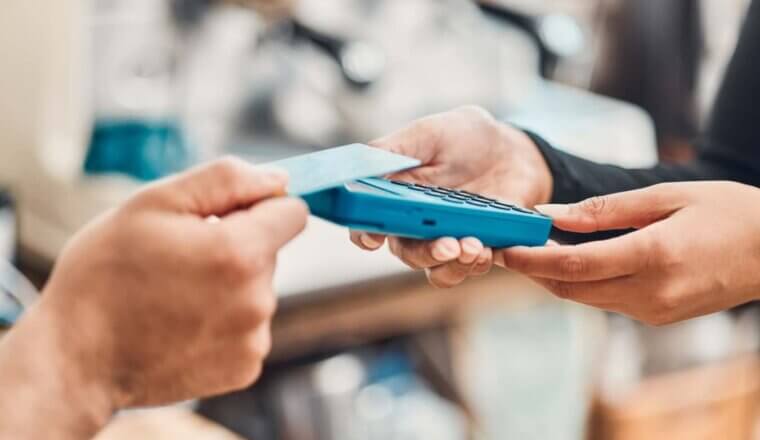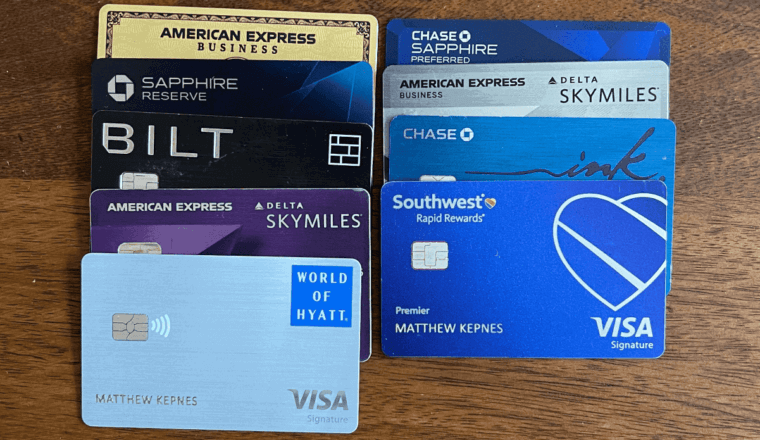
Last Updated: 6/22/23 | June 22nd, 2023
When I was a kid, I was a Boy Scout. I made it pretty far too, but then I became a teenager, decided it was “lame,” and quit. As a Boy Scout, I learned how to tie knots, camp outdoors, be a good citizen, play with knives, and got to have cool sleepovers.
One of the most important things you learn as a Boy Scout is their motto to always “be prepared,” and as I’ve grown up and traveled the world, I’ve found this to also be a travel truism.
You never know what might happen on the road.
Stepping out your door into the unknown is what makes travel so exciting. Each day brings endless possibility, but that possibility is for both good and bad. You may end up enjoying a day sightseeing in Paris — or getting robbed in Berlin. You may spend an amazing day on the beaches of Thailand — or suffer food poisoning in Costa Rica.
But if you’re prepared, you’ll be able to face whatever happens to you on the road:
1. Take Multipurpose Gear
Packing multi-use gear ensures you can easily adjust to changing conditions and helps reduce the amount of clothing you need to take. For example, I like pants that zip off into shorts, walking shoes that look nice enough for an evening out, and using my swim trunks as a pair of shorts. This saves both room in my bag as well as money since I don’t need to buy as much stuff. This always ensures you are dressed for any occasion (after all, who knows when you’ll suddenly find yourself invited to party?!).
Here are some posts on gear that can help you:
2. Carry a Small First Aid Kit
While you can find modern medicine anywhere in the world, I always carry a small first aid kit with a few essential items to be safe. I take Tylenol, stomach illness medicine, eyedrops, Band-Aids, scissors, hydrocortisone cream, antibacterial ointment, and a small supply of doctor-approved antibiotics. I’m usually able to find a pharmacy when I need one, but in case of an emergency, it’s good to have these items handy.
Here’s a detailed guide on putting together a first aid kit.
(And, on a similar note, here are 10 ways to avoid getting sick on the road.)
3. Pack a Small Flashlight
You’d be surprised how many travelers don’t carry one, but a flashlight or headlamp will prove to be invaluable when you suddenly decide to go caving in Panama, when your hike lasts longer than expected and nightfall sets in, or when the electricity goes out unexpectedly, which is not uncommon in a lot of places.
4. Carry a Reusable Water Bottle (with a Filter)
Carrying a reusable water bottle and filter not only saves you money as a traveler, but it also prevents tons of single-use plastic from ending up in landfills or the ocean. And yes, should an emergency arise, you’ll be prepared. Most people can survive for 3 weeks without food — but you’ll only make it 3 days without water. Never leave home without a reusable bottle and filter, so that even you’ll have access to drinkable water if you’re in places where drinking the tap water isn’t recommended. SteriPen and LifeStraw are both great options.
5. Learn Basic Phrases
Locals don’t expect you to be an expert in their language, but knowing how to say “hello,” “goodbye,” and “thank you” goes a long way. After all, wouldn’t you be annoyed if someone came to your home and expected you to know their language?
Knowing a few key phrases will not only make interactions easier, but it will also help you when you bargain for goods, order food, get lost, or need help.
Lonely Planet makes excellent pocket language guides for just about every language spoken, and Benny Lewis wrote this excellent guide on learning languages.
6. Study Nonverbal Communication
Most people interact using both verbal and nonverbal communication, so paying attention to facial expressions can help you appropriately read a situation, even if you don’t understand the verbal part. When you don’t know the language, keep calm and take a moment to read the feelings of the person. This has helped me defuse tense situations with taxi drivers, vendors, and hotel owners. Understanding nonverbal communication doesn’t happen overnight and it does take practice. Here are some helpful guides for getting started:
- A Guide to Non-Verbal Communication
- How to Read Body Language
- Tips on Non-Verbal Communication
- 10 Websites for Non-Verbal Communication Tips
7. Keep Emergency Cash with You
While there is almost always an ATM around these days, you never know when emergency cash might come in handy. You could end up in an airport and find that none of your ATM cards work and you are stuck without any money (which happened to me once). I recommend having a stash of $200 USD for emergency situations. I don’t carry this money around but leave it in my hotel room safe in case something happens. It will be useful if you get robbed or lose your wallet.
8. Have Backup Credit and Bank Cards
I always keep one backup credit card and bank card with me in case of emergencies. You never know when one bank might decide to lock your account for suspicious activity without telling you (yes, that has also happened to me) or when you might get robbed. I once had my bank account information stolen while I was traveling in Europe. My bank had to deactivate my card, and if I hadn’t had a second one with me, I wouldn’t have had access to any money.
Here are some helpful blog posts on credit cards and banking for you:
- How to Pick the Best Travel Credit Card (With Suggested Favorites)
- How to Avoid Bank Fees When Traveling
- The Best Travel Credit Cards
- Points and Miles 101: A Beginner’s Guide
9. Make Copies of Your Passport and Important Documents
Keeping copies of your documents can come in handy during an emergency, especially if you lose your originals. If you get robbed or lose your passport, having copies ready for officials can make filing police reports and obtaining new documents much easier. When I lost my passport, my backup copies helped with my police report and served as my proof of identity at the American embassy. Copy your passport, your health/travel insurance paperwork, and your credit cards.
10. Carry a List of Emergency Contacts
If something happens to you, having a list of emergency numbers on you will help medical professionals know who to contact. I also keep a list of my allergies with me so if I need treatment and can’t answer questions, doctors know what I’m allergic to.
I keep two copies: one with me and one in my bag in my hotel room. Because having backups is important!
11. Have Travel Insurance
The ultimate form of preparedness, having travel insurance will be a blessing if you have to go to the hospital because you popped an eardrum scuba diving, got sick on the road, or broke a leg. Chances are nothing is going to happen to you while traveling, but, when it does, you are going to want to have insurance. Only a fool travels without it.
Here’s a list of suggested articles on how to pick the best travel insurance:
- How to Buy Travel Insurance
- The Best Travel Insurance Companies
- The Best Backpacker Travel Insurance
- Safety Wing Review
12. Read Before You Go
There’s nothing more important than knowing about the place you’re visiting. Head to a library or bookstore and get a few books on what life is like where you’re going. If someone came into your home and ignored all your rules, you would get upset — the same guidelines are applicable when you travel overseas. Knowing basic rules and etiquette can help you avoid any misunderstandings and leave a favorable impression in your host’s minds.
You never know when you might face the unexpected, and if there’s one thing I’ve learned from my years of traveling, it’s that even the best-laid plans can go awry. You may not use everything on this list, and, hopefully, you won’t ever need some of them, but the point is to be ready when you do. After all, a scout is always prepared.
Book Your Trip: Logistical Tips and Tricks
Book Your Flight
Find a cheap flight by using Skyscanner. It’s my favorite search engine because it searches websites and airlines around the globe so you always know no stone is being left unturned.
Book Your Accommodation
You can book your hostel with Hostelworld. If you want to stay somewhere other than a hostel, use Booking.com as it consistently returns the cheapest rates for guesthouses and hotels.
Don’t Forget Travel Insurance
Travel insurance will protect you against illness, injury, theft, and cancellations. It’s comprehensive protection in case anything goes wrong. I never go on a trip without it as I’ve had to use it many times in the past. My favorite companies that offer the best service and value are:
- SafetyWing (best for everyone)
- Insure My Trip (for those 70 and over)
- Medjet (for additional evacuation coverage)
Want to Travel for Free?
Travel credit cards allow you to earn points that can be redeemed for free flights and accommodation — all without any extra spending. Check out my guide to picking the right card and my current favorites to get started and see the latest best deals.
Need Help Finding Activities for Your Trip?
Get Your Guide is a huge online marketplace where you can find cool walking tours, fun excursions, skip-the-line tickets, private guides, and more.
Ready to Book Your Trip?
Check out my resource page for the best companies to use when you travel. I list all the ones I use when I travel. They are the best in class and you can’t go wrong using them on your trip.


